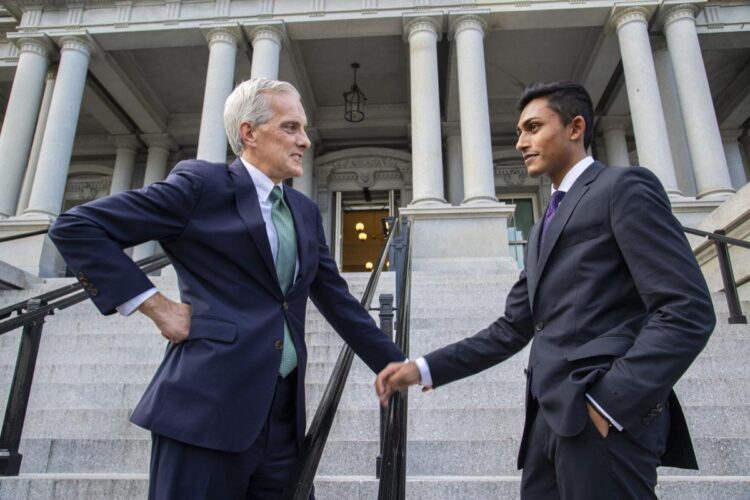(The Center Square) – A veteran advocacy group has called on the U.S. Department of Veterans Affairs for better outcomes on a range of metrics as the agency seeks a bigger budget.
VA is charged with providing medical care, benefits and other services for those who have served in the military. It’s one of the largest federal agencies with an estimated 453,000 full-time employees in fiscal year 2024. Its Veterans Health Administration is the nation’s largest integrated health care system, providing care at 1,321 health care facilities, including 172 medical centers and 1,138 outpatient sites serving about 9 million enrolled Veterans a year.
However, the agency has struggled with a high suicide rate, homelessness and helping service members transition to civilian life, said Jim Whaley, a 20-year U.S. Army veteran and CEO of Mission Roll Call, an advocacy group for veterans.
VA is seeking $369.3 billion for fiscal year 2025, a $33 billion (or 10%) increase over the fiscal year 2024 budget estimate level. When adjusted for inflation, VA’s budget has increased 389% since fiscal year 2001.
Although Congress has given VA more money over the years, not all outcomes have improved. Whaley pointed to more 35,000 veterans experiencing homelessness every night, the Veteran Crisis Line fielding nearly 1 million calls in 2022, and more than 1.4 million veterans dealing with food insecurity every day.
“With that type of investment, we should see significant decreases in suicide, we should see homelessness next to zero, we should see the transition of veterans from the military to the workforce a much easier path,” Whaley told The Center Square. “You have to base these decisions on outcomes. We’re not being good stewards of the taxpayer dollar.”
Whaley said VA needs better oversight. He also said VA needs to be more nimble, faster to respond and foster more connections with nonprofits to reach veterans who aren’t using VA services. Only about half of the nation’s 18 million veterans use VA.
“I don’t think any American is proud of the fact that 24% of active duty military have food insecurity issues, none of us should be proud of that,” he said.
Whaley sees structured and purposeful investment in proven strategies for veterans as a way of strengthening national security.
Americans who don’t interact with VA tend not to spend much time thinking about the department.
“That’s the crux of the problem,” Whaley said.
He also said that U.S. Department of Defense officials shouldn’t be shocked when they miss recruitment and retention goals because military service members are underpaid, at risk of injury and at risk of having navigate a complex bureaucracy to get services they’re entitled to get.
“Fix the problem and the brand will sell itself,” he said.
VA has touted the PACT Act, which expanded VA health care and benefits to millions of veterans exposed to toxins and other hazards while serving. The agency also has permanently housed more than 40,000 veterans two years in a row; expanded life-saving support for Veterans at-risk of suicide; and delivered an all-time yearly record number of health care appointments to Veterans.
VA Secretary Denis McDonough said that the fiscal year 2025 budget will address some issues, but has said VA has room for improvement.
“Veterans, their families, caregivers, and survivors deserve the very best health care and benefits that this country has to offer,” McDonough said in a statement. “With these investments, we at VA can continue delivering more care and more benefits to more Veterans than ever before in our nation’s history.”

